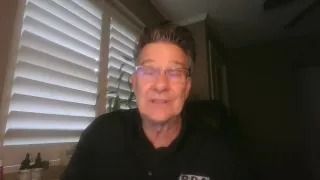Call (727) 784-5555
A reverse mortgage is designed as a financial tool to help seniors age in place by tapping into their home equity, which can be used for whatever purpose they see fit, from paying off medical bills and utility expenses to funding improvements or renovations.
A reverse mortgage can work well for seniors who are living on a fixed income and want to pay off debt or fund their retirement, but it’s not right for everyone. It’s important that you carefully consider your options before taking this step.
What is a reverse mortgage?
A reverse mortgage is a loan. The lender issues you a payment based on the value of your home, minus any outstanding debts and costs to maintain the property.
The loan is partially repaid when you sell or refinance your home. But if you don't use the money to pay off the home equity line of credit or remove it from your house before you die, then it becomes a lien against your estate.

The funds are tax-free and do not require monthly payments. If you end up needing additional cash flow during retirement, however, reverse mortgages can also be converted into an annuity—a monthly payout for life (with no interest charges).
A Reverse Mortgage is not a new concept; it has been around for more than 50 years and has helped tens of thousands of seniors.
Reverse Mortgages were established in 1961 and have been used to help seniors live comfortably in their own homes.
The first reverse mortgage was insured by the FHA (Federal Housing Administration). This program was designed to help seniors who wanted to remain in their homes, but needed financial assistance due to a lack of income or poor health. In today's world, this type of loan is still available for those who qualify for one.
A reverse mortgage is simply the opposite of a traditional mortgage.
A traditional mortgage is a loan you take out to buy a home, with the goal of building equity over time as you pay off the loan. With a reverse mortgage, you are not required to make monthly payments, but the loan balance increases over time as interest on the loan and fees accumulate. When you die, your heirs can inherit your home without having to make any payments on it or take any action.
A reverse mortgage is not just another loan product.
It's a financial planning tool that can be used as part of an overall retirement plan.
You can pay off your loan at any time by selling your home or refinance with another lender. But unlike other types of loans, this type doesn't require monthly payments from you—as long as you remain living in the home and keeping up with maintenance costs (such as property taxes).
A reverse mortgage allows you to convert your home equity into either monthly or lump sum payments or both, while still living at home. The funds are tax-free and there are no required monthly payments, as long as you remain living in the home and continue to maintain it.
A reverse mortgage is a loan that lets you convert your home equity into money while still living in your home.
The funds can be used for any purpose, including:
- Paying off the mortgage
- Providing monthly payments to supplement other income sources or to help pay off debts and/or medical expenses
- Taking out a lump sum payment to use as you wish, such as buying a new car or traveling abroad
Who uses a reverse mortgage?
- Seniors who are "cash poor but house rich" and need supplemental income
- People who want to pay off debts
- People who want to remain in their homes, such as those with special needs or who want to age in place
- Those who need money for medical bills or other expenses related to living at home. Reverse mortgage borrowers must be 62 years old or older. If you’re younger than 62, there are other options for financing your retirement, such as Social Security benefits and personal savings. To qualify for a reverse mortgage, you must: * Be age 62 or older; * Be the owner and occupant of the home; and * Have sufficient equity in your home (the amount depends on the type of loan).
Seniors who have paid-off their traditional mortgages may choose this option to supplement their social security benefits, pensions, and savings so they can stay in their homes and improve the quality of the rest of their lives.
You may want to consider a reverse mortgage if you are:
- Retired and have paid off your traditional mortgage. You can borrow against the value of your home without having to make monthly payments.
- Wanting to supplement your income.
- Paying off existing debt.
- Needing money for medical bills or other current expenses that cannot be covered by Social Security, pensions and savings alone.
- Wanting an opportunity to improve the quality of the rest of their lives by staying in their homes for as long as possible – even if it means delaying some planned expenses or activities until later in life when finances allow such things again (like travel).
If you would like to speak to a Reverse Mortgage advisor, give us a call
(727) 784-5555. Or use our form below to ask a question.
Have A Question?
Use the form below and we will give your our expert answers!
Reverse Mortgage Ask A Question
We will get back to you as soon as possible.
Please try again later.
Check out our other helpful videos to learn more about credit and residential mortgages.





